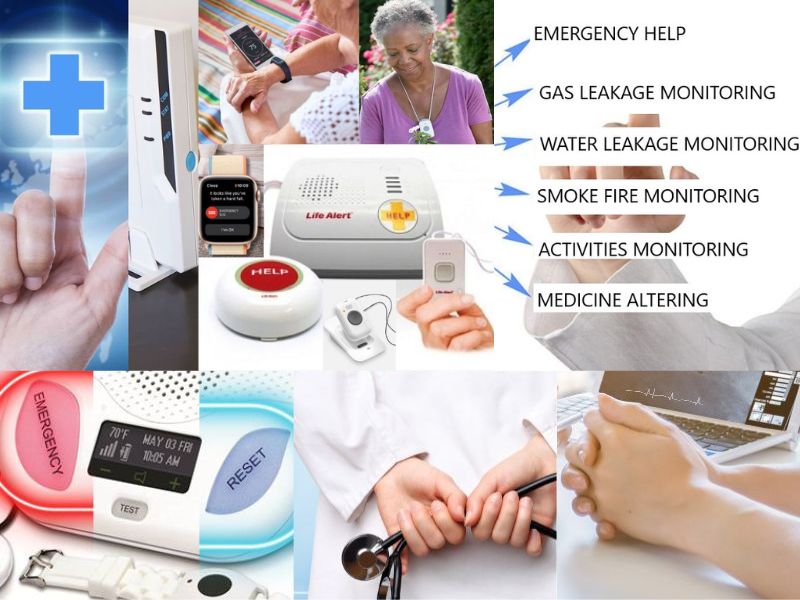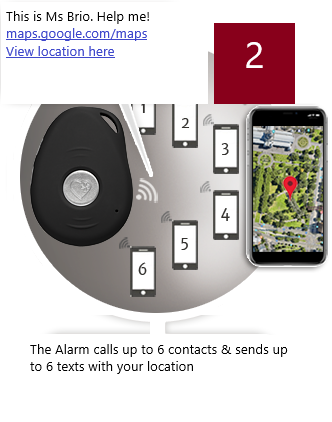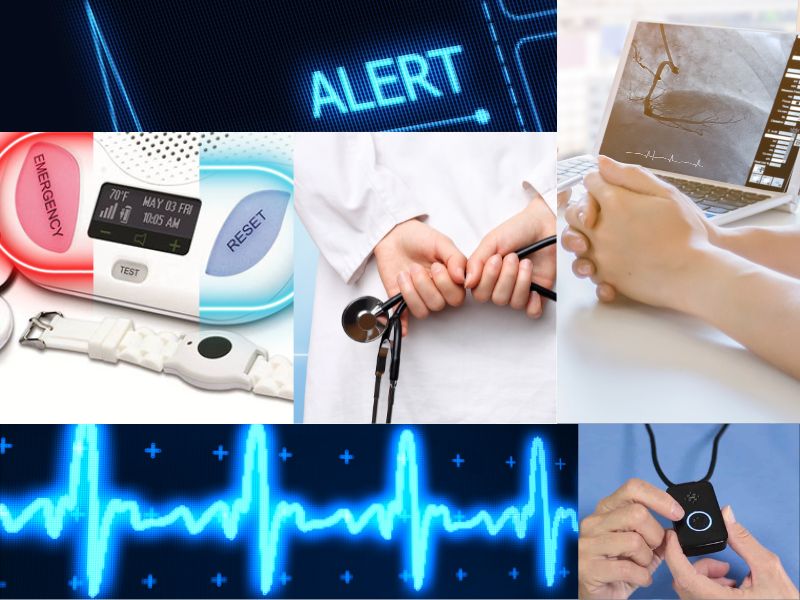Staying safe and secure can be a real concern as we age, especially for seniors and those with disabilities who may need extra help in times of emergency. Personal Emergency Response Systems (PERS) are proving to be lifesaving investments, offering peace of mind that if something happens, such as a fall or medical incident, help is only a button’s press away.
In this blog post, we will explore PERS systems in greater detail so that you can make an informed decision about the best system for your needs.

What are Personal Emergency Response Systems (PERS)?
Personal Emergency Response Systems (PERS) are electronic devices designed to provide immediate assistance to individuals who need help in an emergency. These devices are typically worn as a pendant, bracelet, or watch, allowing users to quickly and easily call for help in a fall, medical emergency, or other urgent situations.
PERS devices are typically used by seniors who live alone, individuals with disabilities, or anyone who may require immediate medical attention in an emergency. These devices can provide peace of mind to users and their loved ones, knowing that help is just a button press away.
How Personal Emergency Response Systems Work
Personal Emergency Response Systems consist of a base unit and a wearable device, usually a necklace or bracelet. The base unit connects to a phone line, and when the wearer presses the help button on their wearable device, the base unit dials the programmed emergency phone number, which could be a family member or emergency services. The system also has a built-in speaker and microphone, allowing the wearer to communicate with the emergency responder.
Why Personal Emergency Response Systems are Important?
Personal Emergency Response Systems (PERS) are vital to helping seniors, and disabled individuals receive immediate medical attention in an emergency. As we age, the likelihood of experiencing a medical emergency increases, and having a PERS device can provide peace of mind to individuals and their loved ones.

Seniors who live alone or those with medical conditions that make them more susceptible to emergencies can benefit greatly from PERS devices. A PERS device can quickly and efficiently connect the wearer with emergency services or loved ones in a fall, heart attack, stroke, or other medical emergency. This can be a lifesaving feature, especially if the individual cannot call for help.
In addition to providing immediate medical assistance, PERS devices can also help prevent further injuries or complications. For example, if an elderly individual falls and cannot get up, they risk developing further injuries, such as pressure sores, dehydration, or hypothermia. However, with a PERS device, they can quickly summon help and receive the medical attention they need to prevent these complications from occurring.
Moreover, PERS devices are not only beneficial for the elderly or disabled individuals but also for their loved ones. Family members and caregivers can have peace of mind knowing that their loved ones can access immediate medical attention in an emergency. This can reduce the stress and worry that often come with caring for an aging or disabled family member.
Overall, PERS devices are a crucial investment for seniors and disabled individuals who need quick access to emergency services. They provide peace of mind, prevent further injuries or complications, and potentially save lives.
Features of a Personal Emergency Response System:
Several features of Personal Emergency Response Systems make them indispensable. These features include fall detection, GPS tracking, medication reminders, and smoke detector alerts.
- Fall Detection: This feature automatically detects falls and immediately notifies emergency services or a designated contact. This feature is particularly essential for individuals with mobility, balance, or a history of falls.
- GPS Tracking: GPS tracking allows emergency services to locate the wearer in an emergency, even if they cannot communicate their location.
- Medication Reminders: Some Personal Emergency Response Systems come with medication reminders to remind users to take their medications on time. This feature is essential for seniors who have memory problems or take multiple medications.
- Smoke Detector Alerts: Personal Emergency Response Systems with smoke detector alerts alert the wearer of a fire and notify emergency services of the location.
What are the Best Personal Emergency Response Systems (PERS)?
Regarding Personal Emergency Response Systems (PERS), many different options are available on the market. Some of the best PERS devices include:
Philips Lifeline
Philips Lifeline is one of the most popular PERS providers, offering a range of devices that cater to different needs. They offer both in-home and mobile options, and their devices come with fall detection sensors, GPS tracking, and two-way voice communication.

Medical Guardian
Medical Guardian offers a range of PERS devices, including in-home and mobile options. Their devices are equipped with fall detection sensors, GPS tracking, and two-way voice communication, and they offer a 24/7 monitoring service.
Bay Alarm Medical
Bay Alarm Medical offers in-home and mobile PERS devices with fall detection sensors, GPS tracking, and two-way voice communication features. They also offer various pricing options, making their devices affordable for most budgets.
MobileHelp
MobileHelp offers a range of PERS devices designed for active and on-the-go seniors. Their devices come equipped with fall detection sensors, GPS tracking, and two-way voice communication, and they also offer various pricing options.
LifeFone
LifeFone offers in-home and mobile PERS devices with fall detection sensors, GPS tracking, and two-way voice communication features. They also offer a caregiver app, which allows family members to monitor the user’s activity and location.
Ultimately, the best PERS device for you will depend on your specific needs and preferences. It is important to research, read reviews, and compare pricing and features before deciding.
Bottom Line
Personal Emergency Response Systems are valuable devices that can provide peace of mind and potentially save lives. It is essential to consider a Personal Emergency Response System for seniors or disabled individuals who live alone or have medical conditions that put them at risk of emergencies.
With features like fall detection, GPS tracking, medication reminders, and smoke detector alerts, Personal Emergency Response Systems are an excellent investment for seniors and disabled individuals who need quick access to emergency services.
